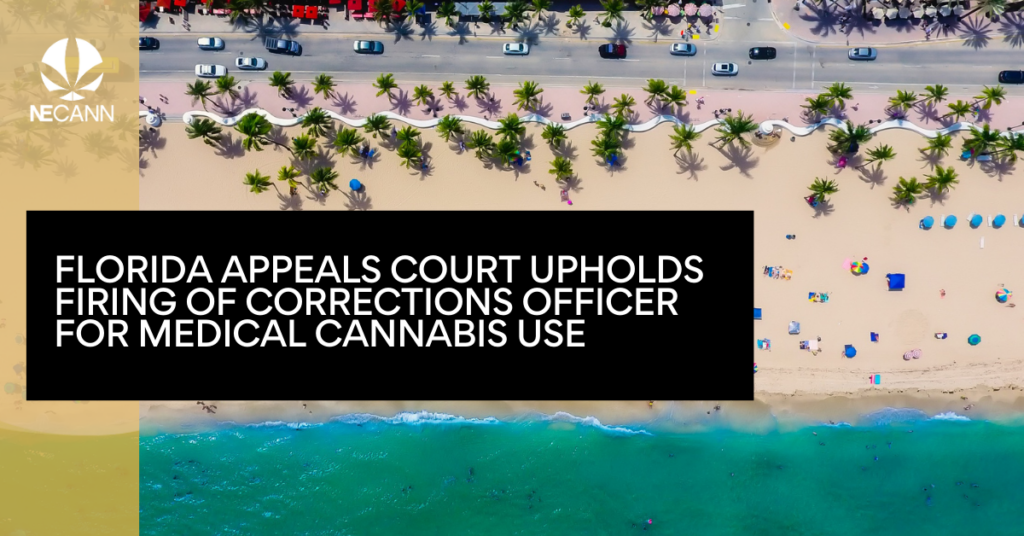A Florida appeals court has recently ruled in favor of upholding the firing of a Department of Corrections officer for his use of medical cannabis. The decision was based on federal law and a job requirement that officers must be able to use firearms. Samuel Velez Ortiz, a former sergeant, had been approved by a physician to use medical cannabis for the treatment of post-traumatic stress disorder related to his military service.
The case stemmed from Velez Ortiz’s failed drug test in 2021, which led to his termination under the department’s “zero tolerance” policy for drugs. Velez Ortiz challenged his firing and took the dispute to the 1st District Court of Appeals after the state Public Employees Relations Commission supported his termination.
In their ruling, the three-judge panel of the 1st District Court highlighted that while Velez Ortiz may legally possess and use medicinal marijuana under state law, his use of it is considered illegal under federal law. They further stated that as a result of his cannabis use, Velez Ortiz is unable to lawfully possess a firearm, which is a requirement for his position as a correctional officer. The panel concluded that Velez Ortiz’s use of medical cannabis violated his obligation to maintain good moral character, which is necessary to retain his certification as a correctional officer.
Lawyers representing the state argued that the Department of Corrections has the right to prohibit correctional officers from being under the influence of marijuana, including medical marijuana, while on the job, regardless of whether the substance was ingested on or off-site. They emphasized that the inability to differentiate between an officer who is impaired due to on-the-job cannabis use and one who consumed the drug off-site poses significant risks to public safety.
Velez Ortiz’s attorneys contended that the case was centered around discrimination against him as a medical marijuana user, noting that he had never requested to use or possess medical cannabis on-site or during work hours. They argued that his termination was unjustified and that the case highlighted the need for clarity and protection of employee rights in situations involving medical cannabis use.
This case is believed to be the first of its kind in the United States, underscoring the ongoing challenges and legal ambiguities surrounding medical cannabis use in various employment settings. As the landscape of cannabis laws continues to evolve, it becomes increasingly crucial to establish clear guidelines and protections for employees who rely on medical cannabis for legitimate therapeutic purposes.



